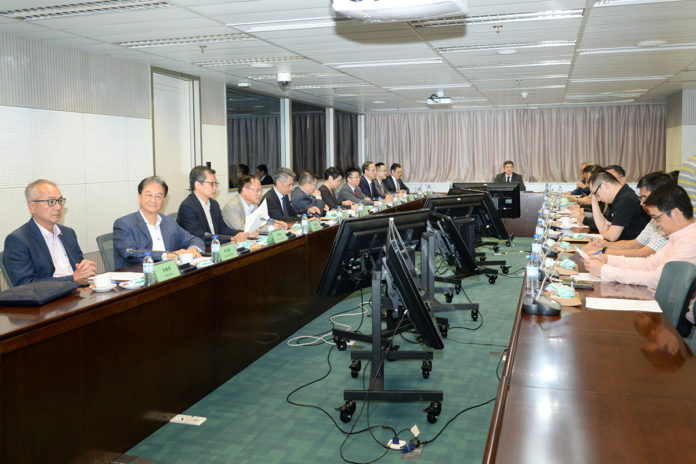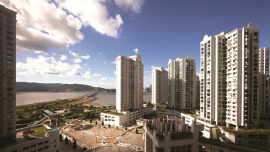“We have to wait for the government to designate plots of lands for construction of temporary housing,” said Paul Tse See Fan, co-ordinator of the first taskforce of the Urban Renewal Committee following its fifth plenary meeting yesterday.
Tse reported that the government, mainly the Housing Bureau, and several committee members objected to the suggestion of taking certain flats out of the planned social and economic housing sphere as temporary accommodation.
“The main reason for their non-agreement is not to lengthen the waiting period of Macau residents who have been waiting for social and economic housing,” said Tse.
The idea of providing temporary housing is to facilitate accommodation on a short or medium term basis to residents of properties being demolished to give way to new buildings in the process of urban renewal.
Meanwhile, the first taskforce has suggested measures to subsidise residents leaving their current accommodation.
According to the co-ordinator, subsidies might be in cash or rental as well as other forms of subsidy.
“Now this has been agreed in principal as well by the Urban Renewal Committee and will then be submitted to the MSAR Government for their further consideration,” said Tse.
Government wholly-owned company
Meanwhile, Wong Seng Fat, Deputy Co-ordinator of the second taskforce, revealed that the preliminary administrative framework of the government’s wholly-owned company was discussed during yesterday’s meeting.
Wong disclosed that the second taskforce suggested the name of the company as Macau Urban Renewal Company Limited.
In terms of company operation, the Deputy Co-ordinator said: “Apart from the promotion of urban renewal, we wish to improve the facilities of the communities and the livelihood of residents as the major aims.”
He added that co-ordination with government departments is necessary, in particular in areas of cultural heritage protection and the building of social facilities.
The meeting yesterday also discussed the shareholders of the company.
“Apart from being owned by the government, we suggested the company be shared by odd digit numbers of shareholders, which means at least three shareholders,” said Wong.
He explained that the majority of other government-owned companies usually comprise companies partly owned by the government as well as public entities that are responsible for funding.
He added that “odd numbers are easier to [arrive at] a result when decisions need to be made through voting.
Regarding hiring employees for the company, Wong said private recruitment will be undertaken pursuant to the Labour Law, while personnel appointed by the government will perform a regular appointment approach.
Wong affirmed that a more detailed proposal about the company will be available in the future.
“Many [Committee members] expressed their opinions and we collected many suggestions to solidify and detail the framework,” said Wong.
Secretary for Transport and Public Works Raimundo Arrais do Rosário, meanwhile, reported that partial consensus was reached on the necessity of approval made by owners of old buildings that are in need of reconstruction.
The consensus was that buildings under 30 years that are in need of demolition or renewal will have to acquire approval from all owners.
For buildings that are 30 to 40 years old, demolition can only be achieved when 90 per cent of the property owners approve, with 85 per cent required for buildings that are more than 40 years old.
The Secretary said total consensus would probably be reached in the next meeting.
























